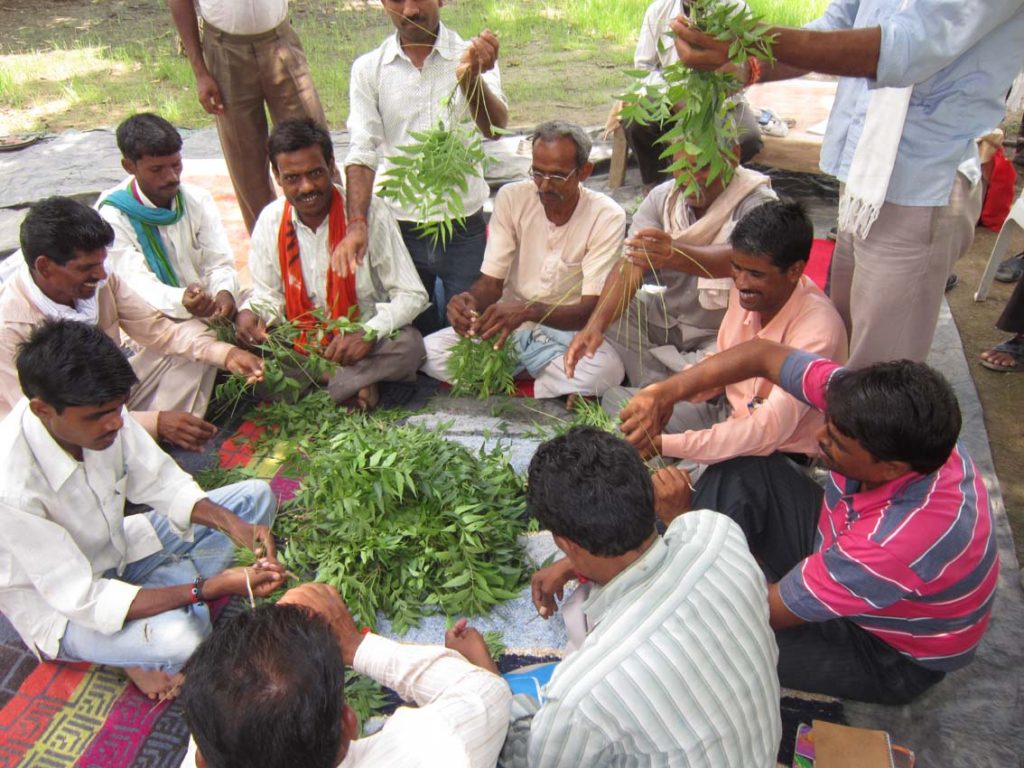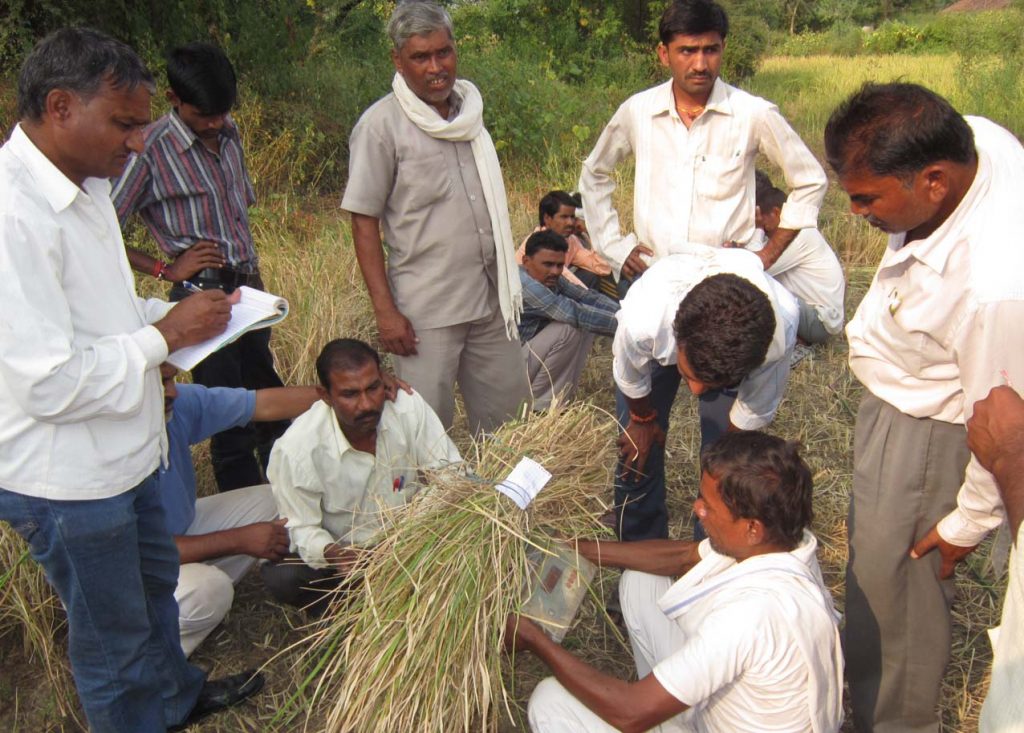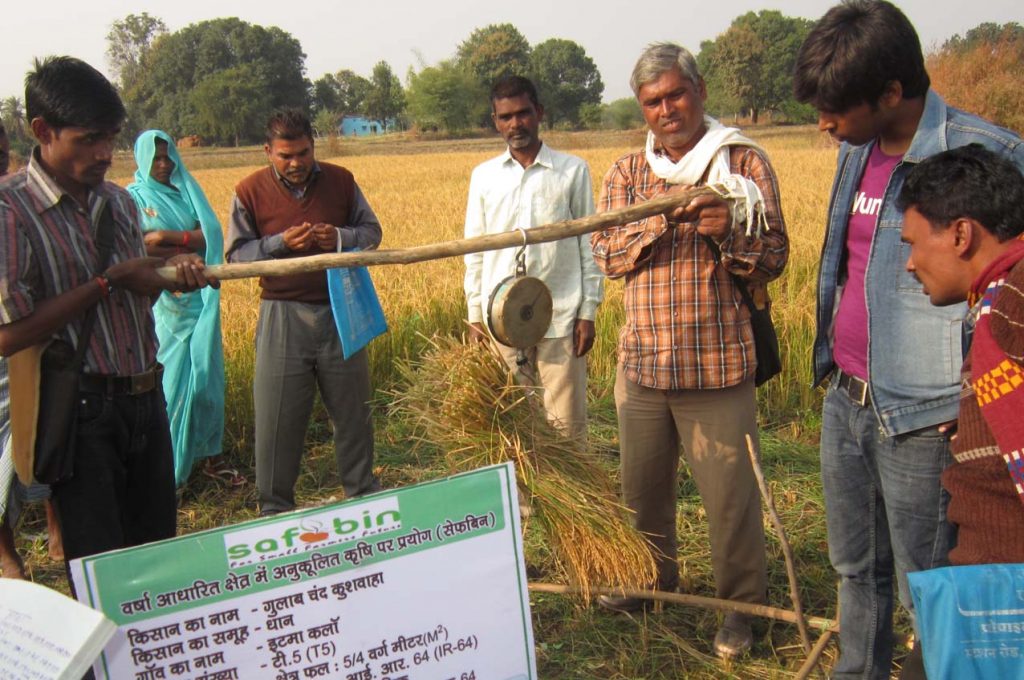
Agriculture scene in India presents a bizarre contradiction of alienation of agriculture from farmers. It is a spectacular example of how farmers lose the wealth of agriculture knowledge with the emergence of technocrats. The ramifications of this process are very significant. Unfortunately, farmers are being considered as a class to be taught and educated about cultivation – a sub-culture which is naturally farmers’ very own. Farmers are now being taught on the so-called scientific and modern cultivation. Green revolution and its associated processes shifted the centre of agriculture from farms to laboratories which churn out general and universal theories of agriculture. Though most of these theories remain valid at macro-level; they either failed or short-lived at local levels especially in India where regional economic, geographic, climatic and social heterogeneities are so pronounced.
One of the fallouts of this ‘modernizing’ of agriculture was alienating farmers from their own agriculture and supplanting agriculture systems in territories where local agriculture was developed as a result of centuries old of practice and experience. Agriculture modernisation, as a planned process dawned in the country with the Green Revolution, intensified and expanded and local agriculture systems were replaced with crops, which were judged only on the basis of yield capacity.

Farmers preparing traditional botanical solutions
Green revolution also contributed greatly to globalization of agriculture, even though in a smaller degree. Green Revolution helped India to gain self-reliance on the front of food production and filled its granaries. But in the process, communities lost indigenous agriculture systems which were more suitable, sustainable and profitable than those were introduced. Green revolution on one side filled the food basket of the country, but on the other, created dependency among farmers. The agriculture that farmers now practice is not entirely theirs, the inputs that they administer are not locally made or procured and the agriculture economy, at micro and macro levels, are greatly controlled by globalised agriculture markets.
Indigenous farming, though less profitable and less-yielding at times, was the first casualty of the Green Revolution. Indigenous agriculture systems were nearly wiped out with the onset of the modern farming which did not pay much respect to the intricate ecological balance, judicious use of natural resources and sustainability; the focus was only on production. Due to this inherently flawed approach, the agriculture practice of people became unviable and unsustainable. No surprise then, this also marked the beginning of increasing farmers’ distress, crop failures, land degradation and severe shortage of natural inputs for agriculture.

Community-based learning and assessment of farmers
Farmers Collective Led Approach (FCLA) forms a part of the overarching People Led Approach (PLA), which emphasizes people’s initiative and lead in the development process. In PLA process, people are at the centre of development action in all its stages. The nomenclature and conceptual framework of FCLA are fairly new. Issues related to food security, agriculture distress, agrarian unrest, etc indicate that the problems of agriculture sector are in a great way dependent on the processes of globalization and modernisation of agriculture sector. Of course, these processes, have contributed significantly to the global agriculture output, especially of the Third World countries like India where agriculture land is under tremendous pressure due to ever-burgeoning population. Ever since its advent in 1945, Green Revolution played a significant role in mitigating the food crisis of the globe but the solutions it prescribed failed the litmus test of sustainability. Notwithstanding its temporary successes in mitigating food crisis, Green Revolution is often criticized as the root cause for the food insecurity that has gripped many countries. It has also contributed heavily to land degradation, ground water depletion, infertility, desertification and destabilizing the agrarian economy. Rather than building sustainable local agriculture systems, Green Revolution had created dependency among people. Generalised agriculture solutions, which yielded excellent results in controlled situations, were introduced in areas that are geographically, climatically and economically diverse. FCLA is suggested as a curative measure that will check the damages done by Green Revolution and reviving agriculture systems that are locally sustainable and viable.
Some of the main features of FCLA concept are given below;

A field-based analysis session in progress
People-centred development models have gained currency in the development discourse across the world. Community participation is increasingly becoming a non-negotiable component of development efforts of not only of governments but development agencies as well. In this context, FCLA needs to be seen as a refined and purposeful interaction of communities in the development process and the embodiment of the collective aspiration of farmers for their progressive empowerment.